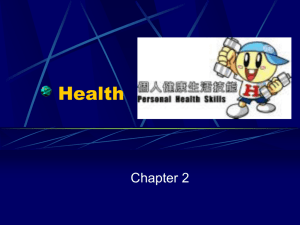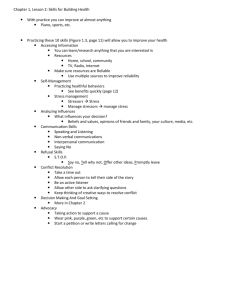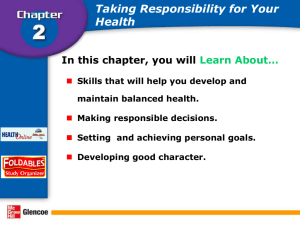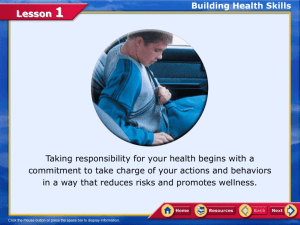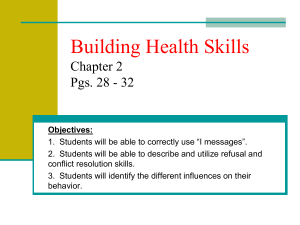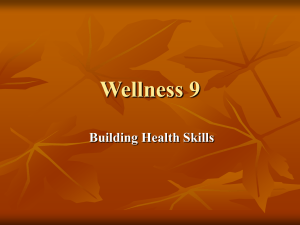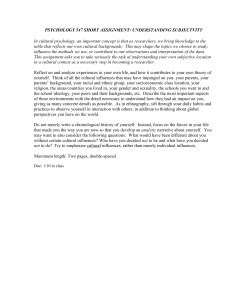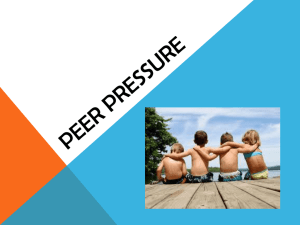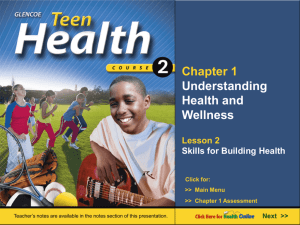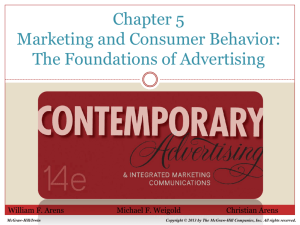Building Health Skills
advertisement
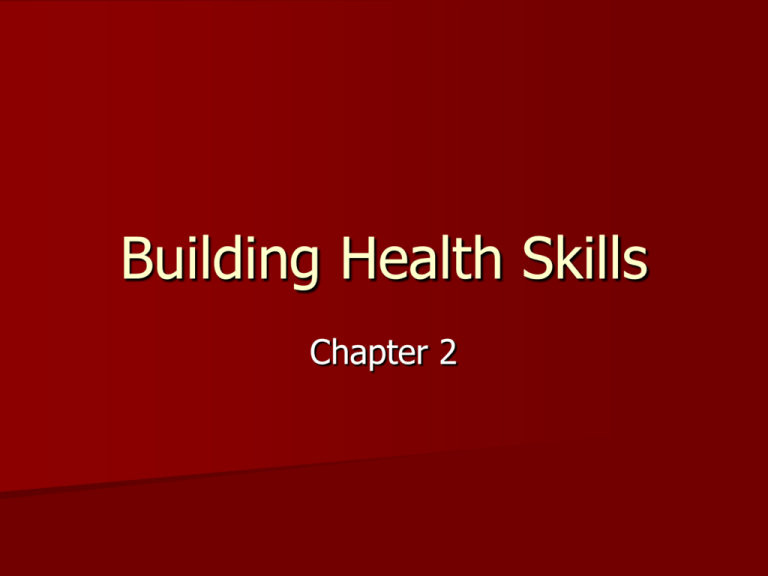
Building Health Skills Chapter 2 Focusing on the main ideas… In this lesson you will learn how to: – Demonstrate communication skills and build and maintain healthy relationships – Describe refusal strategies and conflict resolution skills – Formulate self-management strategies – Assess influences on behavior – Identify evaluation criteria for health information Health Skills Health skills, or life skills, are specific tools and strategies that help you maintain, protect, and improve all aspects of your health. – Interpersonal skills – Self-management skills – Analyzing influences – Accessing information – Advocacy Interpersonal Skills Interpersonal communication is the exchange of thoughts, feelings, and beliefs between two or more people. Effective communication – Clearly state what you mean – Pay attention to how you say something – Be a good listener Interpersonal Skills cont. Refusal skills – Communication strategies that can help you say no when you are urged to take part in behaviors that are unsafe or unhealthful, or that go against your values. Interpersonal Skills cont. Conflict resolution skills – Process of ending a conflict through cooperation and problem solving – KEY: respecting others’ rights and your own Follow these steps when dealing with a conflict: – Take time to calm down and think through the situation – When discussing the conflict, speak calmly and listen attentively, asking questions when appropriate – Use a polite tone and try to brainstorm solutions where no one loses respect. Work to resolve the conflict peacefully. Self-Management Skills Taking responsibility for your health and act in specific ways that promote your wellness. Two types: – Practicing healthy behaviors – Managing stress Practicing Healthy Behaviors Choices you make today will affect your health in the future – Eating nutritious foods – Getting regular medical and dental check-ups – Avoiding use of tobacco, alcohol and other drugs – Expressing your feelings in healthy ways – Building your self-esteem – Maintaining healthy relationships Managing Stress The body’s and mind’s reaction to everyday demands – Natural part of life Stress management: ways to deal with or overcome the negative effects of stress – – – – – Engage in physical activity Listening to soothing music Managing time effectively Taking a warm bath Laughing Analyzing Influences Internal influences: knowledge, values, likes, dislikes, and desires – Based on your experiences and your perspective on life – Control over these influences External influences: outside sources (family, friends, peers, environment, your culture, law and the media) – As you become more aware of these influences, you will be better able to make healthier choices – Harder to control Assessing Information Learning how to find resources from home, school and your community They provide valid information that will help you be better prepared to make healthy choices – – – – Parents, guardians, and other trusted adults Library resources Reliable internet sites Newspaper and magazine articles by health professionals – Government agencies Advocacy Taking action to influence others to address a health-related concern of to support a health-related belief. Read pages 33-36 Write down a situation where you had to make a decision. Follow the steps in Figure 2.3 Make sure you weigh the possible outcomes! – Pick (3) possible outcomes and list the pros and cons of each DISCUSS! Achieving Your Goals Set a specific, realistic goal List the steps you will take to reach your goal Identify sources of help and support Set a reasonable time frame for reaching your goal
